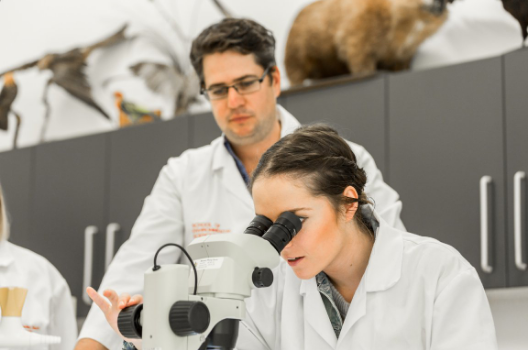The winners of our inaugural Faculty Research Awards and Executive Dean Teaching Awards have been announced. Take a look at some of the fascinating work of three of our research winners.
 December has been a month of celebration at our University, particularly for the Academic Portfolio. More than 3,200 students graduated this month, which includes approximately 740 students from the Faculty of Science and Health, 1,500 from the Faculty of Business, Justice and Behavioural Sciences, 900 from the Faculty of Arts and Education, 45 from our Division of Student Success’ Diploma of General Studies, and 11 from our Division of Learning and Teaching’s Graduate Certificate in Learning and Teaching in Higher Education.
December has been a month of celebration at our University, particularly for the Academic Portfolio. More than 3,200 students graduated this month, which includes approximately 740 students from the Faculty of Science and Health, 1,500 from the Faculty of Business, Justice and Behavioural Sciences, 900 from the Faculty of Arts and Education, 45 from our Division of Student Success’ Diploma of General Studies, and 11 from our Division of Learning and Teaching’s Graduate Certificate in Learning and Teaching in Higher Education.
Our Portfolio achieved outstanding results in the University’s RED Excellence Awards and the winners of the Executive Dean Teaching Awards and Faculty Research Awards were revealed.
To celebrate the outstanding staff who have been recognised in these awards, this blog will highlight some of the fascinating work of three of our Faculty Research Award winners.
Dr Kenneth Chinkwo, School of Dentistry and Medical Sciences – One of the top Level B research award winners in the Faculty of Science and Health
Ken has dedicated his career to research that aims to contribute to a better understanding of cancer prevention, as well as general health benefits. He is currently part of a research team that is testing different cancer cell lines with cereals such as rice, sorghum, oats, lupins and chickpeas to study the anti-cancer activity. The team, which includes Charles Sturt researchers Dr Abi Santhakumar, Dr Nidhish Francis and Professor Chris Blanchard, are looking into the mammalian cell culture mechanism, cell death by apoptosis, reverse tumour growth, pathways and metastasis, that could benefit health and prevent cancer. Ken’s latest research project builds on his work with grains. He is currently leading a team of researchers working to inoculate cancer cells onto the chorioallantoic membranes (CAM) surrounding a chicken embryo and allow these cells to develop into a tumour. By creating these tumours, the team, which includes Charles Sturt’s Dr Justin Roby, Dr Nidhish Francis and Dr Martin Pal, will be able to assess various anti-cancer therapeutic candidates, including those derived from grain extracts and those arising from manipulation of virus-host interactions.
Dr Shukla Sikder, School of Education – One of the top early career research award winners in the Faculty of Arts and Education
Early childhood education is not just a research area for Shukla, it is one of her greatest passions. Starting her career as a science teacher in Bangladesh, Shukla fused her passion for science and educating very young minds to forge a career as an academic and researcher specialising in early childhood STEM education. Since starting at Charles Sturt, Shukla has been a co-investigator on the three-year federally funded STEM innovation grant Little Scientists. She’s also received several internal and external funding grants to support her research into young children’s STEM learning, particularly STEM learning in the established cultural context across home and education settings. It isn’t just young minds Shukla’s been helping to shape. She is currently is co-supervising four PhD students, has been invited to contribute to a number of national and international conferences, and has authored several publications – from peer-received journal to book chapters and reports.
Professor Anthony Saliba, School of Psychology – One of the top researchers by RPI points in the Faculty of Business, Justice and Behavioural Sciences
A Perceptual Psychologist by training, Anthony was the first person to discover that personality type influences taste preference, adding to a better understanding of why people like the foods that they do. Anthony’s other projects and more recent work have been in the area of Positive Psychology. Using this approach to psychology, Anthony’s work seeks to understand how people cope with common psychological disorders and more generally maintain wellbeing. His work has led to greater understanding of the balance between hedonically driven experience, for example pleasure, and healthy long-term behaviours. Over his career, he’s received more than $2 million in research funding and managed more than $8 million in research projects. He’s also been committed to sharing research and discoveries, having engaged in more than 100 media appearances, and published numerous white papers, as well as reports with an i10-index of 50 and h-index of 28.
I would like to take the opportunity to congratulate all of our Faculty Research Award winners.
Research is, and always will be, vital to what we do, and these awards are an opportunity for our University community to celebrate and learn more about some of the innovative and impactful teaching and research our Academic Portfolio delivers.
Professor Janelle Wheat